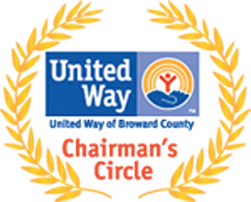Consolidation Loans
Debt consolidation loans are one option you can use to consolidate multiple unsecured debts into a single, low monthly payment. In the right circumstances, you pay less each month, pay drastically less in interest, and even pay off your debts faster than you would ever be able to without consolidation. As with any debt relief option, however, a debt consolidation loan only works if you’re in the right financial position to make it worthwhile and beneficial.
If you’re not sure if a debt consolidation loan is right for you, give us a call at 1-888-294-3130 to speak with a certified credit counselor. They can assess your budget, review your credit report, and provide the advice you need to choose the right debt consolidation option for your unique financial situation.
Secured vs. unsecured debt consolidation loans
There are two types of debt consolidation loans you can get—an unsecured personal debt consolidation and a secured consolidation loan. A secured consolidation loan is really just another name for a home equity loan, because you put up your house as collateral if you default on the loan. Although they are actually the original option for debt consolidation, most experts warn against home equity loans because you risk losing your house if you can’t make the payments.
By contrast, a personal debt consolidation loan is unsecured, which means if you default you may ruin your credit and get your account sent to a collections agency, but you’ll still have a roof over your head. This makes unsecured debt consolidation loans a more practical option for protecting yourself, assuming you qualify for a loan that provides the right financial benefits.
What do I need for a personal debt consolidation loan to work?
When it comes to a personal debt consolidation loan, it’s all about getting the right interest rate. You need an interest rate that’s significantly lower than the rates you have on your various credit card debts. This doesn’t mean just reducing your interest rate by a few percentage points either—ideally you typically need to get an interest rate around 10%-12% or lower, depending on your financial situation.
Of course since the loan is unsecured, financial institutions are much tougher on borrowers, so you need good credit in order to qualify. This means if your debt problems have caused you to be late with credit card payments or miss payments entirely, your credit rating may not be good enough to get the interest rate you need. In this case, you may want to consider other options, such as a debt management program.
What are the risks?
If you get an interest rate that’s too high on a debt consolidation loan, you run the risk of actually making your credit card debt problems worse. If the interest rate isn’t low enough, a debt consolidation loan may keep you in debt longer. You also end up paying more in interest on your debt, because the interest has more time to build.
In addition, make sure that you know what you’re getting with a debt consolidation loan. Some loans include fees and service charges, and even commission costs that can drive the real price of your loan up. Some companies also apply credit insurance charges to your loan as well. All of these extra (often hidden) costs mean your debt consolidation loan can actually cost a lot more than you bargained for.

